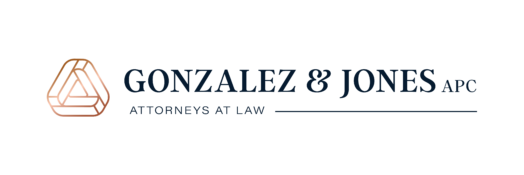
It’s natural to feel overwhelmed when you’ve been rear-ended in California.
Who pays for the damage?
What about your medical bills?
Understanding who is at fault in a rear-end accident is key to moving forward, and Gonzalez & Jones, APC, is here to help.
With over 40 years of experience and a reputation for treating clients like family, our Hollister, California auto accident lawyers make it our mission to guide you through this stressful time with confidence and care.
Please don’t hesitate to reach us online or call (408) 848-2208 today for a free, no-obligation consultation.
Rear-End Accidents Can Be Confusing
If you’ve been rear-ended, you might think determining fault is straightforward—after all, isn’t the driver in the back always responsible? Not necessarily.
While most rear-end collisions place blame on the trailing driver, there are exceptions. Factors like sudden stops, brake checks, or multi-car pileups can complicate the determination of liability. Understanding California’s laws and how fault is assigned can make all the difference in your case.
How Gonzalez & Jones, APC, Can Help
At Gonzalez & Jones, APC, we know that your health and recovery come first. We will fight for your rights while you focus on healing. We’ve spent decades navigating California’s car accident laws, helping clients like you receive the compensation they deserve. With our personalized approach and aggressive representation, you’re never just another case to us.
Understanding Rear-End Collision Fault
Understanding who is at fault in a rear-end collision is the cornerstone of building a strong legal case. California’s laws provide clear guidelines, but every situation is unique, and nuances can impact the outcome of your claim. Here’s what you need to know to start untangling the complexities of fault.
Who Is at Fault in a Rear-End Accident?
In California, the driver in the rear is often presumed to be at fault in a rear-end accident. The reasoning is simple: all drivers must maintain a safe following distance and be prepared to stop if traffic slows suddenly.
However, exceptions exist, such as:
- Sudden stops or brake checks. If the lead driver stops abruptly without warning, they may share some liability.
- Mechanical failures. If the rear driver’s brakes failed, they might not be entirely at fault if the failure was unforeseeable and properly maintained.
- Multi-car collisions. In a chain reaction accident, multiple drivers could share fault depending on their actions and the sequence of events.
These scenarios demonstrate how fault can shift depending on the circumstances. Consult with an attorney to ensure the fair evaluation of your case.
How Liability Is Determined
California follows a comparative negligence system, meaning rear-end collision fault can be shared between drivers.
Key factors used to determine liability include:
- Police reports—these often provide a detailed account of the accident, including witness statements and officer opinions;
- Traffic laws—violations like speeding or tailgating are clear indicators of fault;
- Dashcam footage—video evidence can clarify the events leading up to the collision; and
- Witness testimony—neutral third-party accounts can help establish the facts.
Each piece of evidence adds clarity to the determination of fault, ensuring a fair outcome. Working with a law firm familiar with California traffic laws can make all the difference in building a strong case.
Who Is at Fault in a Rear-End Collision with Multiple Cars?
In multi-car pileups, determining fault can be complex.
For example:
- Initial driver. The driver who caused the first impact may bear most of the blame.
- Middle drivers. Those pushed into another car may not be at fault if they could not avoid the collision.
- Final driver. The last car in the chain may share liability for not maintaining a safe following distance.
Examining the chain of events is crucial to distributing fault appropriately in these situations. Evidence like photos, videos, and police reports often play a significant role in piecing together what happened.
What to Do If Someone Rear-Ends You
If you’re rear-ended in California, the trailing driver is generally responsible. However, liability can shift in rare situations where your actions contributed to the crash, such as sudden and unnecessary stops or failing to maintain brake lights.
Knowing your rights and responsibilities can prevent unexpected complications in your claim. An experienced attorney can help clarify these nuances. If you’ve been rear-ended in California, it’s important to take steps to protect your health and legal rights.
Here are the steps to follow:
- Check for injuries—prioritize your health and call 911 for medical assistance;
- Document the scene—take photos of the vehicles, damage, and any visible injuries;
- Gather information—exchange contact and insurance details with the other driver(s);
- Call the police—a police report can be invaluable in proving fault;
- Seek medical attention—even minor symptoms could indicate serious injuries; and
- Contact an attorney—reach out to Gonzalez & Jones, APC, to discuss your case and protect your rights.
Following these steps ensures you have the necessary evidence and support for your case. Taking quick action can significantly affect the outcome of your claim. It’s also wise to avoid admitting fault at the scene, as even innocent comments can be misconstrued later.
Moving Forward with Confidence
At Gonzalez & Jones, APC, we know that being rear-ended isn’t just a legal issue—it’s a life disruption. Our family-owned firm is committed to making the legal process as smooth as possible for you. With personalized attention and aggressive representation, we fight for the compensation you deserve while you focus on what matters most: getting your life back on track.
Ready to Take the Next Step?
If you’ve been injured in a rear-end collision, don’t wait. Contact Gonzalez & Jones, APC, online or call (408) 848-2208 today for a free consultation.
Let us guide you through this challenging time and fight for the justice you deserve.
